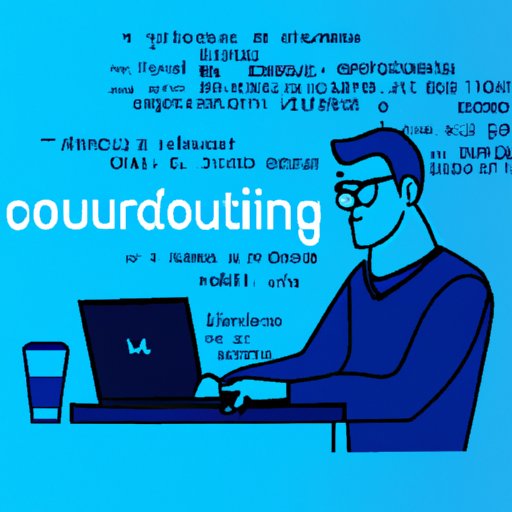Introduction
Computer programming is the process of writing instructions that can be read and executed by a computer. It involves creating and modifying software applications and operating systems. Becoming a computer programmer requires dedication, hard work, and a strong understanding of various programming languages. If you’re interested in learning how to become a computer programmer, this guide will provide an overview of the necessary steps.
Research the Different Types of Programming Languages
The first step to becoming a computer programmer is to understand the different types of programming languages. There are many different kinds, including object-oriented, functional, scripting, and markup languages. Each type of language has its own unique features and characteristics. Research the most popular and in-demand programming languages such as C++, Java, Python, and JavaScript.
Once you have a better understanding of the different types of languages, you’ll need to identify which language(s) you want to learn. Consider factors such as your experience level, the type of projects you want to work on, and any specific requirements for certain jobs. You may decide to focus on one language or learn several different ones.

Take Relevant Courses in Computer Science
Once you’ve identified the programming language(s) you want to learn, you’ll need to take courses to gain a deeper understanding. Look into online courses or in-person classes offered at local colleges or universities. You may also want to explore available certificate programs that can help you learn more about a particular language or subject area. Additionally, consider pursuing a degree in computer science if you’d like to make a career out of programming.
Develop Problem-Solving Skills
Programming requires strong problem-solving skills. You must be able to break down complex problems into smaller components and then devise solutions. Practice solving coding challenges and puzzles to hone your problem-solving abilities. This will help you develop the skills necessary to troubleshoot programming issues and write efficient code.
Practice Writing Code
Once you’ve gained a better understanding of the programming language(s) you’re learning, it’s time to start writing code. Work with sample code and tutorials to get comfortable with the fundamentals. Experiment with different programming concepts and utilize debugging tools to identify and fix errors. The more you practice writing code, the more comfortable and confident you’ll become.

Learn About Algorithms and Data Structures
Algorithms and data structures are essential components of programming. Understand the basics of algorithms, such as sorting and searching algorithms, and learn about the various data structures, including linked lists, stacks, and trees. Practice implementing algorithms and data structures to strengthen your programming skills.
Utilize Available Resources Online
There are a variety of free resources available online such as tutorials, forums, and blogs. Take advantage of these resources to learn more about programming concepts and best practices. Additionally, make use of open source libraries and frameworks to save time and effort when developing applications.
Network with Other Programmers
Networking with other programmers can help you stay up-to-date on the latest trends and technologies. Connect with other programmers through social media and attend coding meetups and conferences. Participating in hackathons is another great way to network and collaborate with other developers.
Conclusion
Becoming a computer programmer requires dedication and hard work. To become a successful programmer, you need to research different types of programming languages, take relevant courses in computer science, develop problem-solving skills, practice writing code, learn about algorithms and data structures, utilize available resources online, and network with other programmers. With perseverance and a willingness to keep learning and growing as a programmer, you can achieve success.


